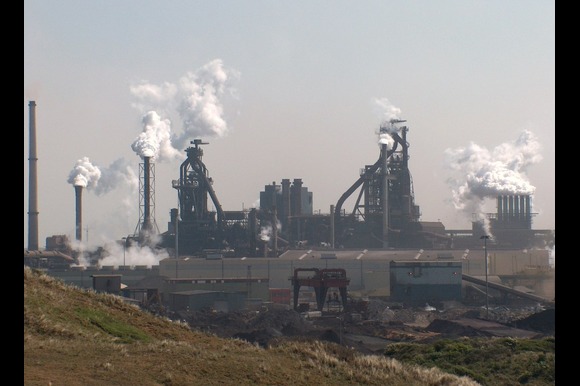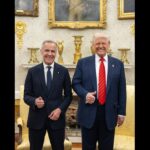In a decision that has reignited trade tensions with key allies, U.S. President Donald Trump has doubled tariffs on steel and aluminium imports, a move aimed at revitalising the struggling American metals industry.
Effective early Wednesday, the new measures raise import duties from 25 percent to 50 percent. Trump defended the decision as necessary support for domestic producers, with White House economic adviser Kevin Hassett stating at a Washington steel industry event on Tuesday: “We started at 25 and then, after studying the data more, realised that it was a big help, but more help is needed. And so that is why the 50 [percent tariff] is starting tomorrow.”
The executive order implementing the increase applies to all U.S. trading partners except the United Kingdom, which has secured a provisional trade agreement with Washington during a 90-day suspension of broader tariff hikes. Under this interim arrangement, British steel and aluminium exports will continue to face the original 25 percent rate until at least July 9.
The increased tariffs are expected to hit Canada and Mexico especially hard—two of America’s closest economic partners and among the largest steel suppliers to the United States. According to data from the U.S. Census Bureau, Canada exports more aluminium to the U.S. than the next ten top exporting nations combined, with nearly half of U.S. aluminium consumption met by imports.
Canadian Prime Minister Mark Carney’s office confirmed that “intensive and live negotiations” are ongoing in a bid to secure an exemption from the new tariffs. Meanwhile, Mexico’s Economy Minister Marcelo Ebrard criticised the move as “irrational,” pointing to the U.S. trade surplus in steel with Mexico.
“It makes no sense for the United States to levy a tariff on a product in which you have a surplus,” Ebrard said, adding that Mexico is actively seeking an exemption from the revised duties.
The European Union also denounced the tariff hike, expressing deep regret and warning of possible retaliatory actions. In a statement, EU officials accused Washington of undermining efforts to reach a negotiated resolution, escalating trade tensions instead of resolving them.
Alvaro Pereira, Chief Economist at the Organisation for Economic Co-operation and Development (OECD), told AFP that the tariffs have already had a chilling effect on global trade, investment, and consumption—and cautioned that the United States is likely to absorb the bulk of the economic fallout.
While some of Trump’s broader tariff policies are currently under legal challenge, they remain in effect during the appeals process. Despite international criticism and legal scrutiny, the administration appears determined to press forward with its protectionist approach.
The move has raised alarms among economists and industry leaders alike, who fear the doubling of tariffs could strain diplomatic relations, disrupt supply chains, and further destabilise an already fragile global trade environment.






